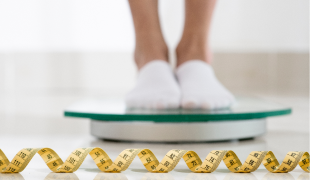Daily Water Intake Calculator: Stay Hydrated for Better Health
Staying properly hydrated is essential for your overall well-being. Our Daily Water Intake Calculator is a handy tool that helps you determine how much water you should drink each day based on various factors such as weight, activity level, and climate. Proper hydration supports bodily functions, boosts energy levels, and promotes a healthy lifestyle.
Understanding Daily Water Needs
How much water to drink a day? This question often comes up, and while the common guideline is to drink eight 8-ounce glasses (known as the "8x8 rule"), individual water needs can vary significantly. Factors such as your body weight, activity level, and the environment you live in can influence your hydration requirements.
Key Factors Influencing Water Intake:
- Body Weight: Heavier individuals generally need more water to stay hydrated.
- Activity Level: If you exercise regularly or engage in physically demanding tasks, you will need to increase your fluid intake.
- Climate: Hot and humid weather can increase perspiration, leading to a higher need for water.
Secure your health with a second opinion. Make informed decisions and book your appointment today!
Get A Second Opinion
Using Our Water Intake Calculator
Our water intake calculator takes the guesswork out of determining your hydration needs. By entering a few personal details, you can receive a personalized recommendation for your daily water intake.
How to Use the Water Intake Calculator:
- Enter Your Weight: Input your current weight to get a more accurate estimate of your hydration needs.
- Specify Activity Level: Select your activity level (sedentary, moderate, or active) to account for your lifestyle.
- Receive Your Recommendation: The calculator will provide a tailored estimate of how much water you should drink daily.
Water Intake According to Weight
One effective way to determine your hydration needs is to calculate water intake according to weight. A commonly used guideline is to drink about 30 to 35 milliliters of water for every kilogram of body weight.
Sample Calculation:
- For example: If you weigh 70 kg:
- Gender: Men generally require more calories than women due to higher muscle mass.
- 70 kg×30 mL=2100 mL (or 2.1 liters)
Additional Considerations:
- Add Extra for Activity: If you exercise, consider adding 500-1000 mL depending on the intensity of your workout.
Risks of Inadequate or Excessive Hydration
Low Water Intake
Not drinking enough water can lead to dehydration, which can cause various health issues:
Symptoms of Dehydration:
- Thirst
- Dark yellow urine
- Fatigue
- Dizziness
- Dry Mouth
High Water Intake
Conversely, excessive water consumption can lead to a condition called hyponatremia, where sodium levels in the blood become dangerously low.
Symptoms of Hyponatremia:
- Nausea
- Headaches
- Confusion
- Muscle Weakness
- Seizures
When to Seek Treatment
- For Dehydration: If symptoms persist despite increasing fluid intake or if you are unable to keep fluids down, it is essential to seek medical attention.
- For Hyponatremia: If you experience symptoms like confusion or seizures, it's critical to seek immediate medical care.
Ready to take control of your health journey? Book your appointment now and start your path towards wellness today!
Book an Appointment
Tips for Balancing Your Hydration
1. Set Reminders:
Use apps or alarms to remind you to drink water throughout the day.
2. Keep Water Accessible:
Carry a reusable water bottle to ensure you can drink water wherever you go.
3. Incorporate Water-Rich Foods:
Include fruits and vegetables like cucumbers, oranges, and watermelon in your diet, which can contribute to your overall hydration.
4. Adjust for Activity and Climate:
Increase your water intake on days when you exercise or when it's particularly hot outside.
5. Monitor Your Urine Color:
Keep an eye on the color of your urine; it should be light yellow. Dark urine often indicates dehydration.
Proper hydration is crucial for maintaining energy, supporting bodily functions, and enhancing your overall health. Our Daily Water Intake Calculator makes it easy to determine how much water you should consume each day. By understanding your hydration needs, you can make informed choices that contribute to a healthier lifestyle.




